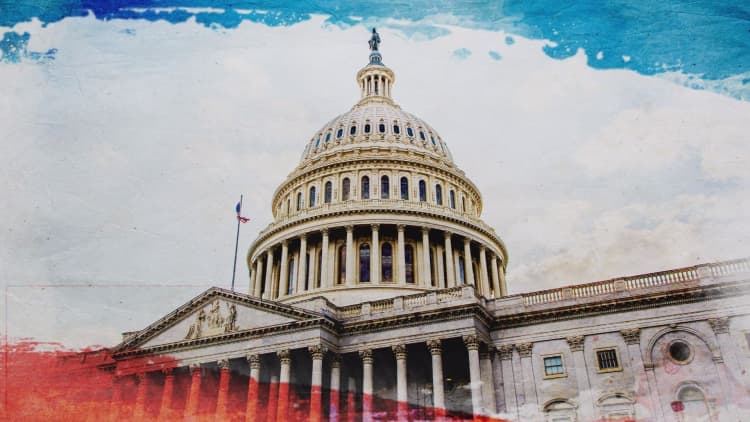
Elections for Congress in November will have a huge impact on the next two years of Donald Trump's presidency.
The results will influence economic and regulatory policies, investigations into administration scandals, and the possibility that Trump will be impeached.
Do Democrats have enough political momentum to seize control of the House and Senate from Republicans in November? Three major factors will shape the outcome.
The first is history. Midterm elections always let voters express discontent with the president.
So the incumbent's party has lost House seats in all but three of the midterm elections of the last century. In each of the last three — 2006, 2010 and 2014 — the opposition party captured control of one or both chambers of Congress.
A second variable is geography.
For the House, where Democrats need a net gain of 23 seats to take control, they find targets of opportunity in urban and suburban areas across the country. But the Senate poses a much tougher challenge.
Democrats only need to gain two seats for a Senate majority. But five incumbent Senate Democrats face highly competitive races in states Trump won in 2016 — in some cases by a lot. Of the Democrats' top four prospects for winning Republican seats, three are in states Trump won.
The third factor is the political climate. The classic determinants of political success favor Republicans.
America is not bogged down in a major war. Unemployment has fallen below 4 percent. Stock values have risen. The economy grew at more than 4 percent in the second quarter of the year.
"We have a choice between economic policies that are working and economic policies that didn't work," Rep. Steve Stivers of Ohio, who chairs the House GOP campaign, told me recently. "We have a clear choice between safety and security at home and abroad, and a worldview that would eliminate ICE, cut the military, make us less safe. We're selling peace, and we're selling prosperity."
But the president's volatile, divisive style has rallied Democrats to turn out strongly in recent special elections. In particular, it has rallied college-educated women who have favored Republicans in past elections.
Trump's hardcore Republican base among blue-collar voters hasn't been nearly as excited. Increased growth hasn't yet fattened their paychecks, which has become a central Democratic campaign theme.
"Let's start with Donald Trump," Sen. Elizabeth Warren of Massachusetts, a leading 2020 Democratic presidential prospect, told me. "He made big promises to a lot of people who've just gotten the short end of the stick over and over and over.
"And he not only hasn't delivered on those promises, he's literally turned in exactly the opposite direction," Warren added. "He delivered huge tax cuts to billionaires, he has helped deregulate for big corporations. He has made it easy for the rich and the powerful to get richer and more powerful."
Each party and its candidates have raised more than $1 billion for the battle. But money won't decide who wins.
History shows fewer than half of eligible voters turn out for midterm elections. In 2014, just 36 percent of those eligible showed up.
That makes motivation decisive. And it's why Republicans, including the Republican in the Oval Office, are worried.
"There's a real question as to whether people are going to vote if I'm not on the ballot," Trump told a recent gathering of conservative Christians at the White House. "I just ask you to go out and make sure all of your people vote. If they don't vote, we're going to have a miserable two years."
To alarm his religious audience, Trump warned of a siege by "violent people" if Democrats recapture Congress. Given the stakes, the rhetoric will only get hotter as Election Day approaches.



